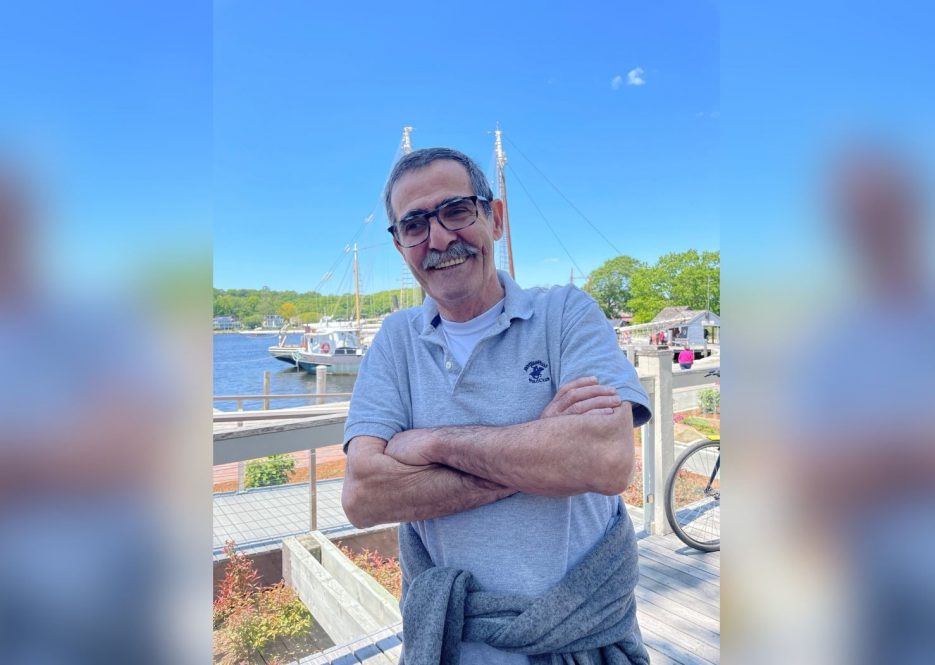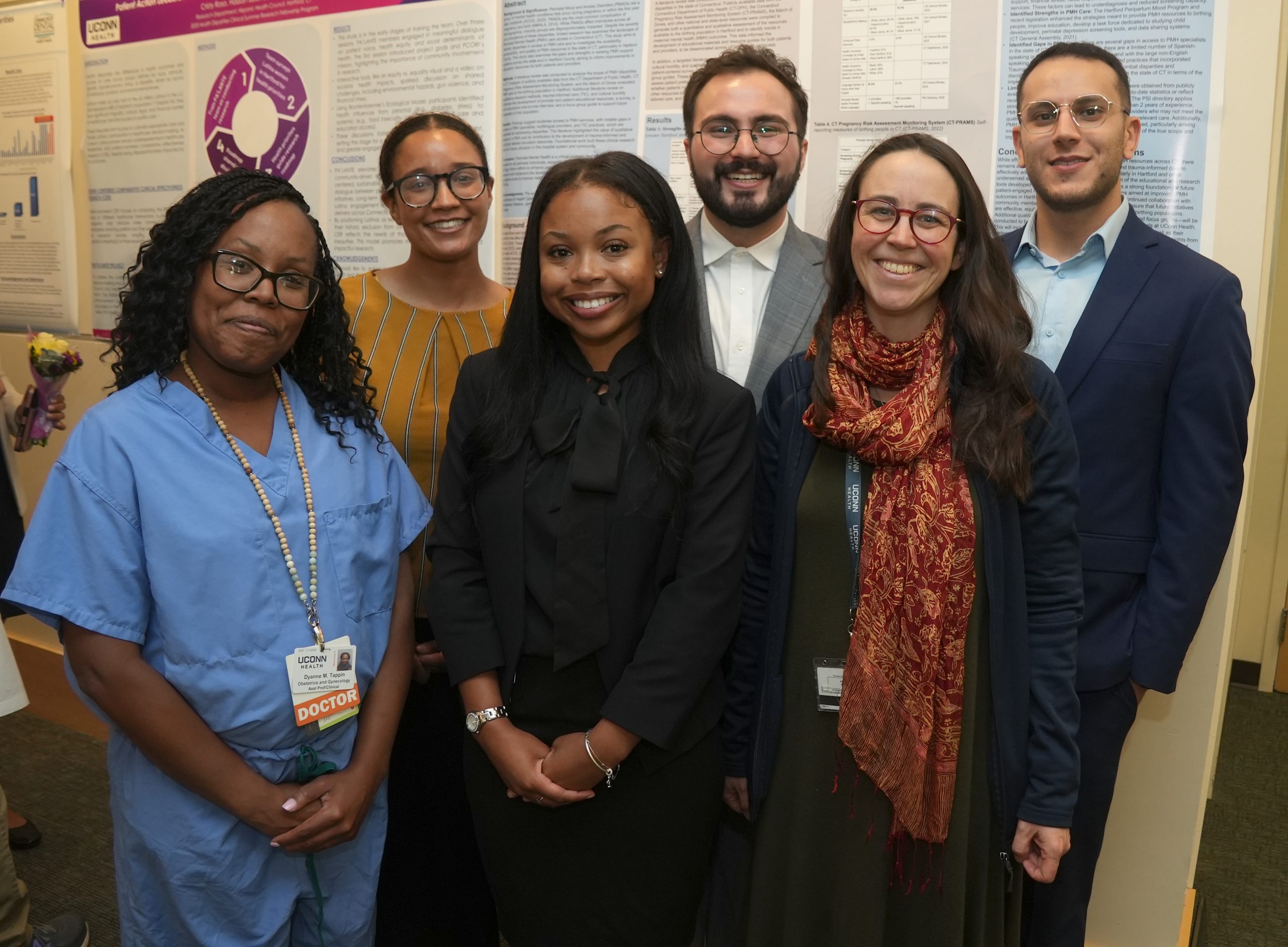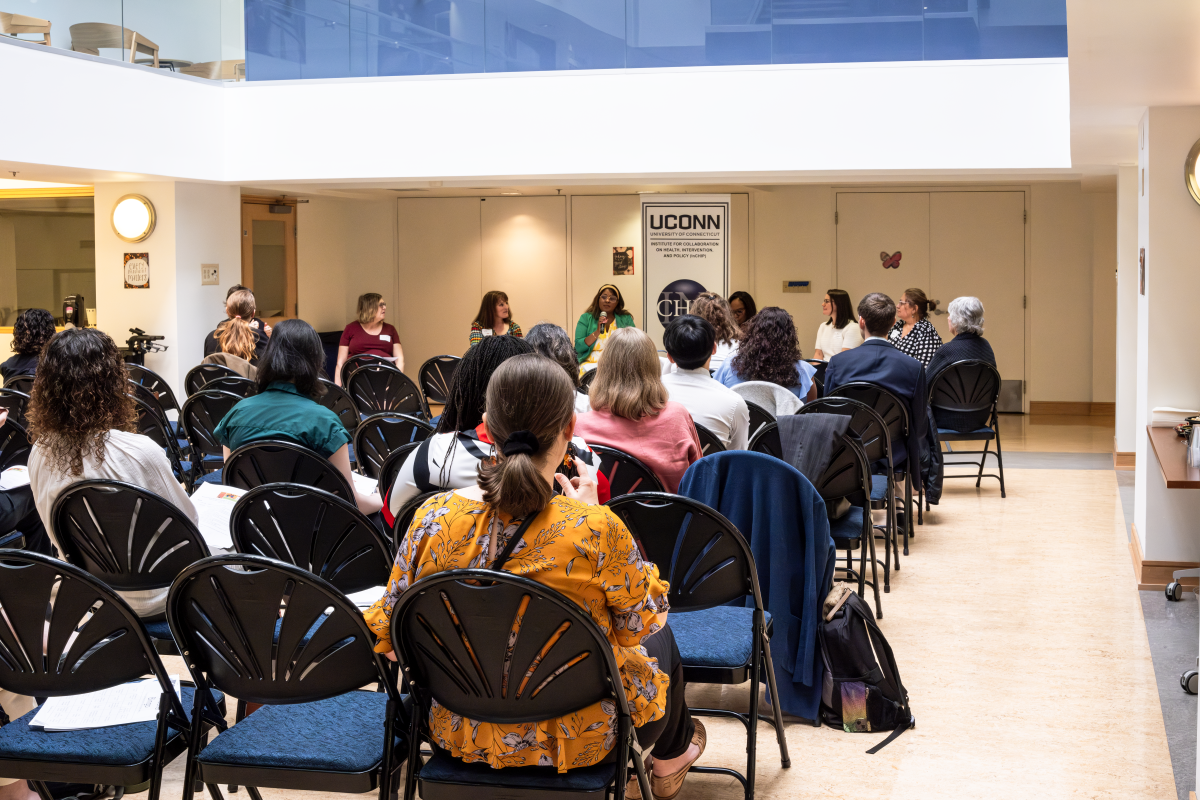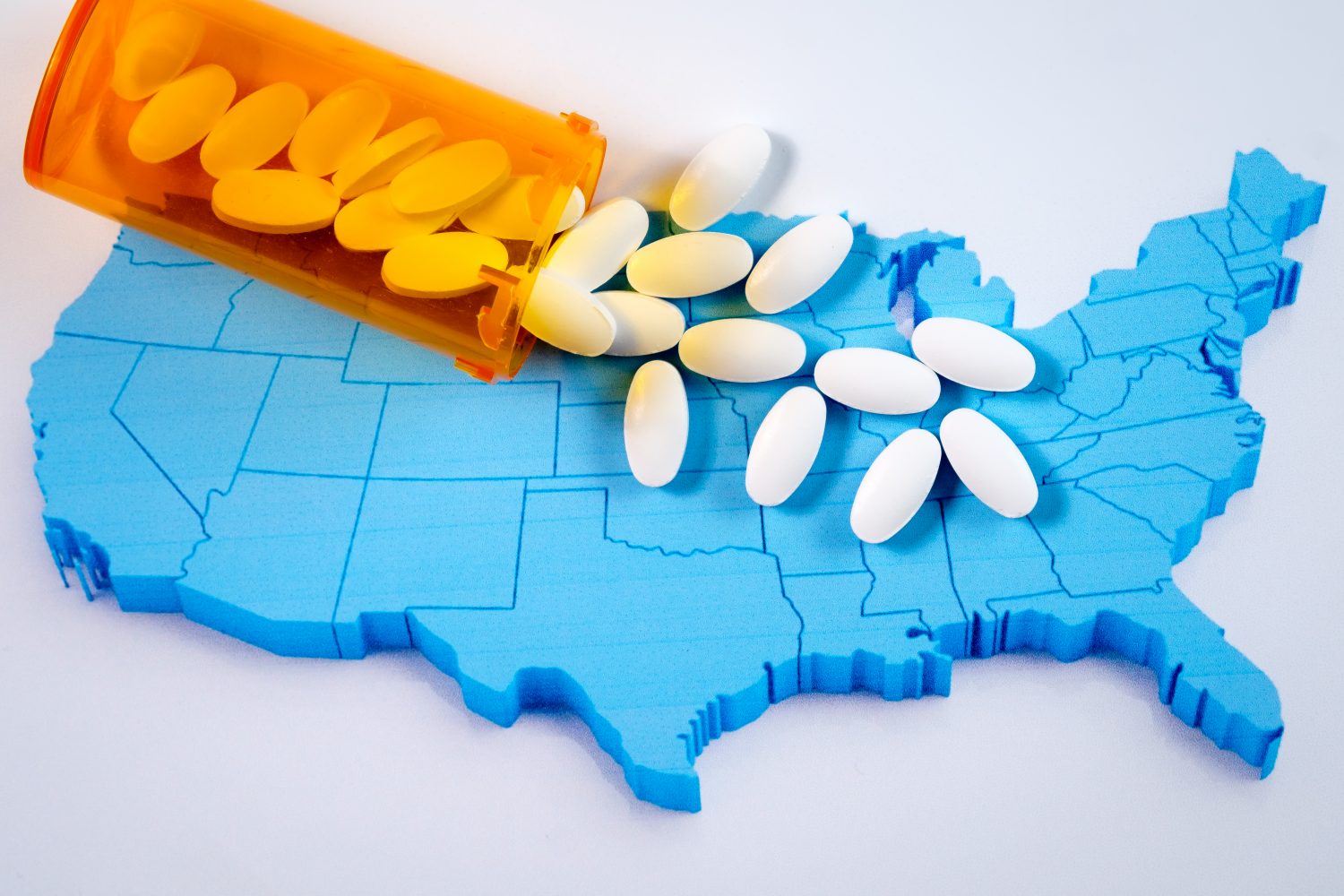Ojeda Johnson’s cell phone rang in early December. She almost didn’t pick it up just thinking it might be another telemarketer calling.
But she did pick up the call. It was a volunteer UConn premedical student calling from the UConn Health Leaders (UCHL) program to see if she could help her father in anyway.
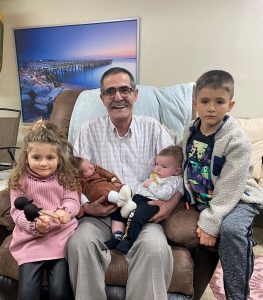
“That phone call was lifesaving for my Dad,” she says. “And his three kids and four grandkids, too.”
Her father, Pellumb Medolli, 71, of East Hartford, originally from Albania, has smoked cigarettes for more than 50 years. This risk factor makes him high-risk for lung cancer.
To help make a difference in the health of others, volunteer students in the UCHL program started calling him and other high-risk patients who hadn’t followed up yet to get their lung cancer screening scans to ask why not, and whether their answers had anything to do with unmet social determinants of health factors influencing their health care.
The program’s goal is to intervene to help curb patient health inequities, as 80% of an individual’s health outcomes are influenced by one’s social determinants of health, which are day-to-day environmental factors such as economics, food insecurity, housing, and transportation.
Sarah Bellizzi ’23 (CLAS) of Berlin was the UConn then-undergraduate who made the life changing call. She just graduated in May with her Bachelor of Science in Physiology and Neurobiology. She hopes to apply and attend UConn School of Medicine to become a doctor.
She connected Medolli and his family to UConn Health’s Financial Services team to help him get the lung cancer screening test funding coverage he was in need of and entitled to as a longtime smoker at high risk.
“My dad’s lung screening test and his doctors at UConn Health determined he had Stage 1a lung cancer,” says daughter Johnson. “He was another victim of smoking. But we’re very lucky they caught it early.”
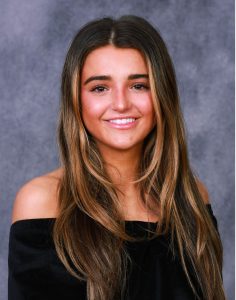
“He’s doing great. He is now cured,” after receiving robotic lung cancer surgery in April at Hartford Hospital to minimally invasively resect a part of his upper right lung to remove the cancer, Johnson says.
“We would love to share his story to help others high-risk for lung cancer to get screened,” she says. “We also want to say thank you to UConn Health. We really appreciate what you have done. Because of the UConn students volunteering to make phone calls, my dad got to where he is today.”
She adds: “I would love to give the premed student who called us a big hug, and a big thank you from our family. I’ve been thinking about her throughout lots of my dad’s doctor appointments, and lots of our tears and happy tears.”
“It’s hard to know over the phone if you are really making a difference or an impact on patient lives,” says Bellizzi. “But now I know! Mr. Medolli’s success story is a great example of proactively identifying social determinants of health risk factors for lung cancer. I am so glad we started a lung cancer screening project and can help save people’s lives like Mr. Medolli. I am so proud to be part of UConn Health Leaders.”
“A simple phone call can save so many lives,” Johnson says. “It saved my dad’s life. Thank you to every single UConn student who has made a patient phone call. You really are making a difference.”
As a cancer survivor’s daughter, Johnson now has a message to others who are still smoking or otherwise at high risk for lung cancer.
“You are not doing any favors to your lungs with smoking,” she says. “You are probably nervous to not open a can of worms by getting your lungs screened. But if you don’t get checked, you may not have a chance to do anything to save your life,” Johnson stresses. “Getting your lung cancer screening will give you a clear view of what is going on. With lung cancer, you can’t afford to delay your checkup. Take advantage of the opportunity. Early detection gives you options and it’s good to have options rather than run out of them.”
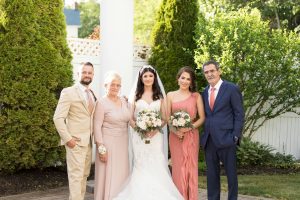
There is also more good health news for Medolli, who is grateful for UConn Health’s help and for even more precious family time.
“Now whether big or small, my family occasions are so important and worth the battle,” says Medolli. “I’m here and feeling better and stronger each day! Thank you, UConn Health.”
His daughter added: “UConn Health gave my dad a second chance,” she says. “He has taken this second chance opportunity and has stopped smoking. Instead of cigarettes he’s now breathing that fresh air!”
The UConn Health Leaders program was co-founded in 2019 by then-medical student Henry Siccardi, MD, MPH ’23. It gives students interested in health care as a career the opportunity to have direct patient care experiences by addressing unmet social determinant of health needs.
For Siccardi, saving lives from lung cancer is also now a personal mission. Both his parents Henry and Kim were longtime smokers diagnosed with lung cancer at the same time in 2021. Sadly, his father passed away this past November.
“Mr. Medolli’s story strongly shows how our UConn student volunteers actively help the patients like him to get the care they deserve,” Siccardi says. “His unmet need was access to getting his lung cancer screening due to concerns of financial coverage by insurance. He also had the barrier of English being his second language.
“Sarah, the volunteer who called him, identified this as a barrier and connected him to UConn Health Financial Services. This ultimately led him to get the screening test completed, which identified his early-stage lung cancer that was cured by surgery. Many patients like Pellumb essentially never get the appropriate treatment or screening tests done because of similar barriers. UCHL is answering those through the use of an active volunteer staff looking to both identify and address them for all patients.”
There is an additional benefit for the UCHL student volunteers, too.
“In return, the student volunteer enjoys helping others and better solidifies their choice to enter the health care field,” says Siccardi, who is about to begin his UConn internal medicine residency training this summer and plans to expand the UCHL program further to help more patients and train the future generation of health professionals to keep social determinants of health top of mind in their practice of medicine.
UCHL has trained 303 students over the last 3 years. In that period, they screened 8,994 people, identified 5,945 patients with unmet social factors, and addressed 2,115 unmet social needs.
“UCHL was designed to provide this educational experience to students so they are aware of social determinants of health and can be better prepared to address these challenges when it is their turn,” says Dr. Christopher Steele, assistant professor of medicine at UConn School of Medicine and UME/GME Educational Liaison. “The program has empowered so many to make a meaningful impact in our community. We look forward to improving the addressing of the unmet needs by partnering with local community organizations that address these concerns. A big part of this will be obtaining funding for community health workers to be on the ground to work with our neighborhood organizations and patients to get the care they need. We also hope to expand this program to other clinical sites nationally and develop partnerships of like-minded individuals looking to improve the delivery of healthcare.”
Also, working on the UCHL program’s lung cancer project was Jasmin Hundal, MD, a graduating General Internal Medicine Fellow from UConn School of Medicine.
Early detection of lung cancer is key to surviving. Patients who meet the criteria that are aged 50 to 80 years who have a 20 pack-year smoking history and currently smoke or have quit within the past 15 years should have an annual screening for lung cancer with low-dose computed tomography. For more information on lung cancer screening, call UConn Health at 844-777-LUNG to discuss your health history and answer a few questions. A nurse navigator will call you back to discuss your eligibility for the screening test.
